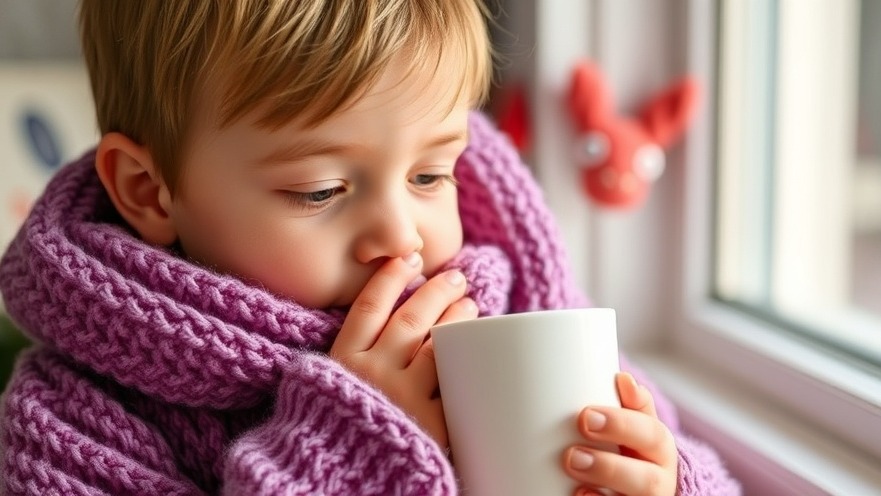
Why Home Remedies Are the Best Option for Kids’ Colds
The notion that home remedies may be more effective than over-the-counter cold medications for children is gaining traction among parents and health professionals alike. With increasing concerns over the safety and efficacy of conventional cold medicines for young children, it's important for parents to consider alternatives that can provide relief without added risks.
The Risks of Over-the-Counter Cold Medicines
According to both the FDA and the American Academy of Pediatrics (AAP), children under age four should not be given over-the-counter cough and cold medications. The risk of serious side effects and potential overdose is not worth the fleeting benefits. These medicines can often mask symptoms without effectively treating the underlying viral infection. Instead, it’s preferable to focus on home remedies that not only alleviate discomfort but also support the child's innate healing abilities.
Home Remedies that Work
Research from trusted sources like the American Academy of Pediatrics highlights a variety of effective home remedies beneficial for children suffering from colds:
Hydration: Keeping your child well-hydrated is vital. Offer plenty of fluids like water, electrolyte solutions, or gentle broth. Hydration helps thin mucus and facilitates easier breathing.
Saline Drops: To relieve nasal congestion, consider using saline nasal sprays or homemade saline solutions. These can help loosen mucus and clear blocked nasal passages.
Rest: Encourage your child to rest; their body needs energy to fight off the infection. Allow them plenty of time to recuperate without unnecessary interruptions.
Humidity: Utilizing a cool-mist humidifier in your child’s room can increase moisture in the air, which can soothe irritation in their throat and nasal passages.
Warm Compress: A warm compress applied to the face can alleviate sinus pressure and discomfort. Just ensure it’s at a safe temperature for children.
What to Avoid
Despite the array of remedies available, certain practices should be strictly avoided. For instance, aspirin should never be given to children due to the risk of Reye’s syndrome, a serious condition that can damage the liver and brain. Additionally, honey should not be given to children under one year due to the potential risk of botulism.
Expert Advice on Home Remedies
Dr. Bruce Terrin, a pediatrician, emphasizes that many children can recover from colds without medicinal interventions. “Generally, children recover on their own, so you just have to let colds run their course,” he states. Still, having accessible remedies makes the process more comfortable for them.
Listening to Your Child’s Needs
It’s important not to treat every symptom with medication. As the AAP advises, if your child isn’t significantly bothered by their symptoms and their behavior is normal, then they may not need any treatment at all. Fever, for example, can be a natural response that helps the body fight infections.
Future Predictions: The Shift Towards Natural Remedies
As awareness around health and wellness grows, it is likely that more parents will turn to natural remedies to treat common childhood ailments. The effectiveness and safety of these alternatives could potentially reshape pediatric care, emphasizing a more holistic approach to health that prioritizes natural healing processes over pharmaceuticals.
Actionable Tips for Parents
As parents, being proactive can make a significant difference in how your child navigates through cold season:
Keep a stock of home remedy supplies like saline solutions, honey (for older kids), and a humidifier.
Educate yourself about the different symptoms and remedies so you can respond appropriately.
Monitor your child’s health, and when in doubt, consult your pediatrician for personalized advice.
If you're curious about maximizing your productivity while maintaining your child's health, consider integrating these home remedies into your caregiving routine. Understanding and applying these natural solutions can reinforce your confidence as a parent while supporting your child’s well-being during cold season.
 Add Row
Add Row  Add
Add 




Write A Comment